Promises & Perils of the Bubble
Thinness confers upon women the kind of power that money actually confers on men.
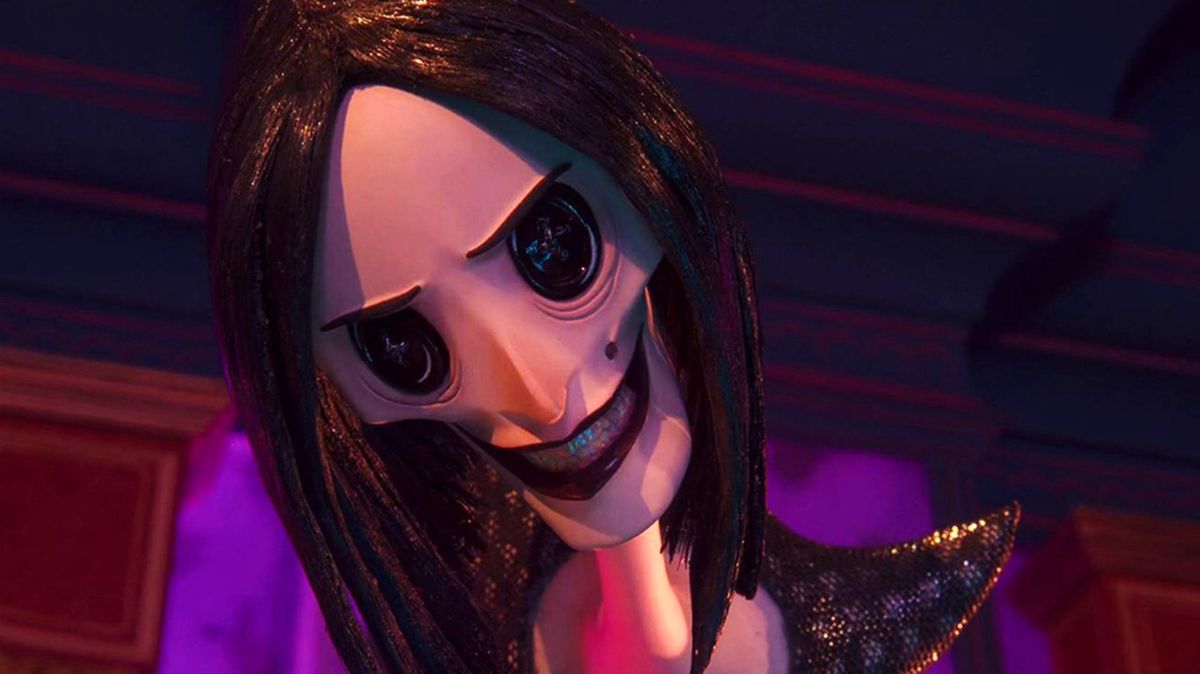
The Sunken Place
Our tinted luxury charter bus bumped and crunched along the patchwork asphalt between LaGuardia Airport to the twee enclave of Bedford, NY. Bus passengers were a who's who of popular high school freshmen, specifically those whose parents were rich enough to send them to France, on a class field trip. We were on the home-bound leg of an international voyage that included Paris, Versailles, Normandy, and Provence. I should remember this trip well, but I barely remember it at all. I will never forget, though, when the entire bus started chanting in unison, about me: "Lilian is COOL! Lilian is COOL! Lilian is COOL! Lilian is COOL!" They wouldn't stop chanting. Couldn't stop. Undeniable unanimous and resounding approval from the popular kids! My membership into their exclusive club, univocally ratified. I blushed and sank into my cushioned seat. Don't they know I am an imposter?
If you were to write a coming-of-age screenplay about an awkward and sexually repressed Catholic immigrant girl growing up in modern suburban America, who overcomes her doomed social prospects to become one of the popular kids, probably you would not include a scene in which a bus full of stereotypical popular kids chants in praise of your protagonist. It would be cheesy, and it would take divine inspiration of directorial talent to film such a scene convincingly. Truth truly is stranger than fiction, though, and I swear on my life that this event actually happened.
So why did those kids decide to chant my praises in unison? Was it because my french grandmother's onetime best friend Giselle, a powdered and prim Parisian woman, joined our tour group during one of our meals, thus establishing the fact that I was the only student who could claim to know anybody in Paris? That must be worth cool points, no? Was it because I had recently revealed to my peers some rather impressive status markers: Brains that put me in honors classes with them, multiple spoken languages proficiency, a Swiss passport that allowed me to clear customs much faster than the rest of the group? Maybe, but probably not. Other kids I knew had fancy status markers, and were never thus inducted into this most exclusive clique.
Is it possible that I was cooler than I remember? Possible, but not likely. I assure you, I did not come from cool stock. My parents have funny accents. They wore weird clothes and dressed me in even weirder clothes. They were, and are, a pair of hapless architects, each with their own unique hue of Asperger's Syndrome. Their architectural designs, as far as I have seen them, are riddled with foundational design mistakes, whereby passageways, hallways, and seating areas are far too narrow and cramped for actual human beings. Both my parents grew up as old world Catholics, repressed to the point of appearing cartoonishly sexless.
My mother wasn't going to dress in black lace forever, should she have become widowed, but the nuns at her Catholic school did force her to switch from left-hand dominant to right-handed, because left is sinister, apparently. This was Rio de Janeiro in the 1950's, and the nuns were not kidding around; they were going to make damn sure that you hated yourself, or bust. The girl students at her school bathed after gym class in full length white robes, soaping themselves furtively inside of these absurd fabric tents. My dad's upbringing was more bourgeois than my mom's. He was half as traumatized, perhaps, but twice as socially awkward. It is a miracle that my parents procreated, frankly, which makes me my own living proof that miracles can and do happen.
I didn't feel cool in 1998, when the chanting incident occurred, and I still don't feel cool. The salient difference between then and now is that I no longer covet conventional coolness. Instead, I rank coolness as a measure of how readily any given person is willing to forgo ego-logic. I am not even sure that individual persons are actually separate objects. The ego may well be a sort of hallucination: A sparse shadow of a hyper object, whose full dimensionality we are unequipped to conceive: The Godhead, (or what not). After all, we speak with borrowed words, dream in borrowed images, and trade in borrowed currencies. It seems possible that the philosophical problem of Identity is ultimately a dead end. But I digress... In any case, I assure you that I was not cool in 1998. I was a nerd, a teacher's pet, and an off-the-boat weirdo.

How then did I overcome my doomed social prospects? Well, I cheated. You see, at the time of the bus incident, I was newly thin. Over the course of a year or so, I had shrunken myself from a women's size 8-10 to an enviable size 2-4. At five foot seven, I weighed anywhere between 115 and 120 lbs. Just a year prior, I had been a chubby teen, pushing 150lbs. In other words, the popular kids were probably reacting to a radical makeover in my physical appearance, which I had recently undertaken. Americans love their before-and-afters. It helped, of course, that my facial bone structure underlay a pretty face, and that my hair was shiny, etc. But the thinness was key, I think, to my sudden acceptance in high society.

How did I drop so much weight off of a frame that was already smaller than average? Well, I exercised compulsively, and I starved. Even on vacations, I did sit-ups and leg lifts in hotel rooms. Some part of me knew that starvation was cheating, and that I was a traitor to other women and to myself. But the rewards and compliments never stopped. I knew that people at school would assume I had simply gone through puberty and naturally thinned out, but that was not the truth. I did go through puberty, but I did not thin out naturally. To this day, my homeostatic size is a 6-8, and my homeostatic weight is the same 150lbs. I am thinner than most American women, but compared to the vast majority of the images of women that we all see daily, I am a thick, lumbering monster, almost unfathomably large.
Why did I decide to lose so much weight as a teen? Because my mother and father told me to. It began circa 1995 when I was twelve. Yes, I was chubby then, but barely. My chubbiness was not a dangerous condition, yet it was treated as a five alarm fire. My mom told me that the doctor had told her that I was on the borderline between normal weight and overweight, and that I should simply endeavor not to gain any more weight, while growing an extra inch or two. "She'll stretch out like a piece of clay," the doctor had said, with a patronizing grin. This doctor unwittingly put into place the moral permission structure for my parents, who were otherwise considerate and loving, to initiate a campaign of what I can only describe now as psychological abuse. My mom explicitly coached me how to starve. "If you eat smaller portions, your stomach will shrink, then you won't be as hungry, and you'll eat less," she said, wholly unscientifically.
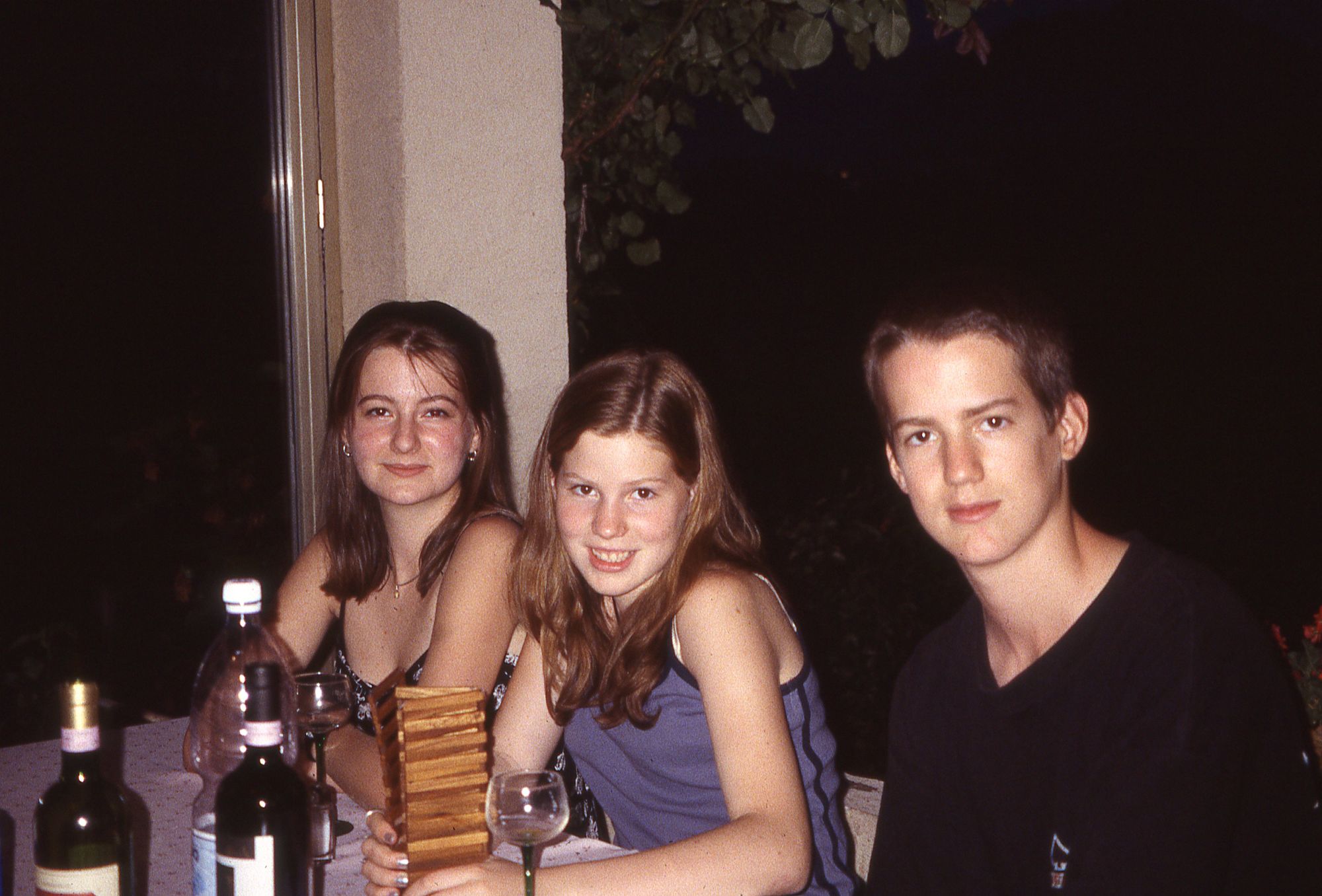
My thin siblings were allowed to order regular sugar Coke at restaurants, but I had to drink Diet Coke (which I now know to be carcinogenic chemical poison). This formal policy dictating restaurant protocol, I realize now, must have been a concerted effort on the part of my parents, which resulted from fraught conversations that they had about my body, in private. It makes me feel sick to think about my parents' contempt for my body, and the fear that they clearly felt that my fatness would preclude me from living whatever shoddy dreams they could muster for my future. They were busy people, and I do not know how they had time to worry about my body, but they made time.
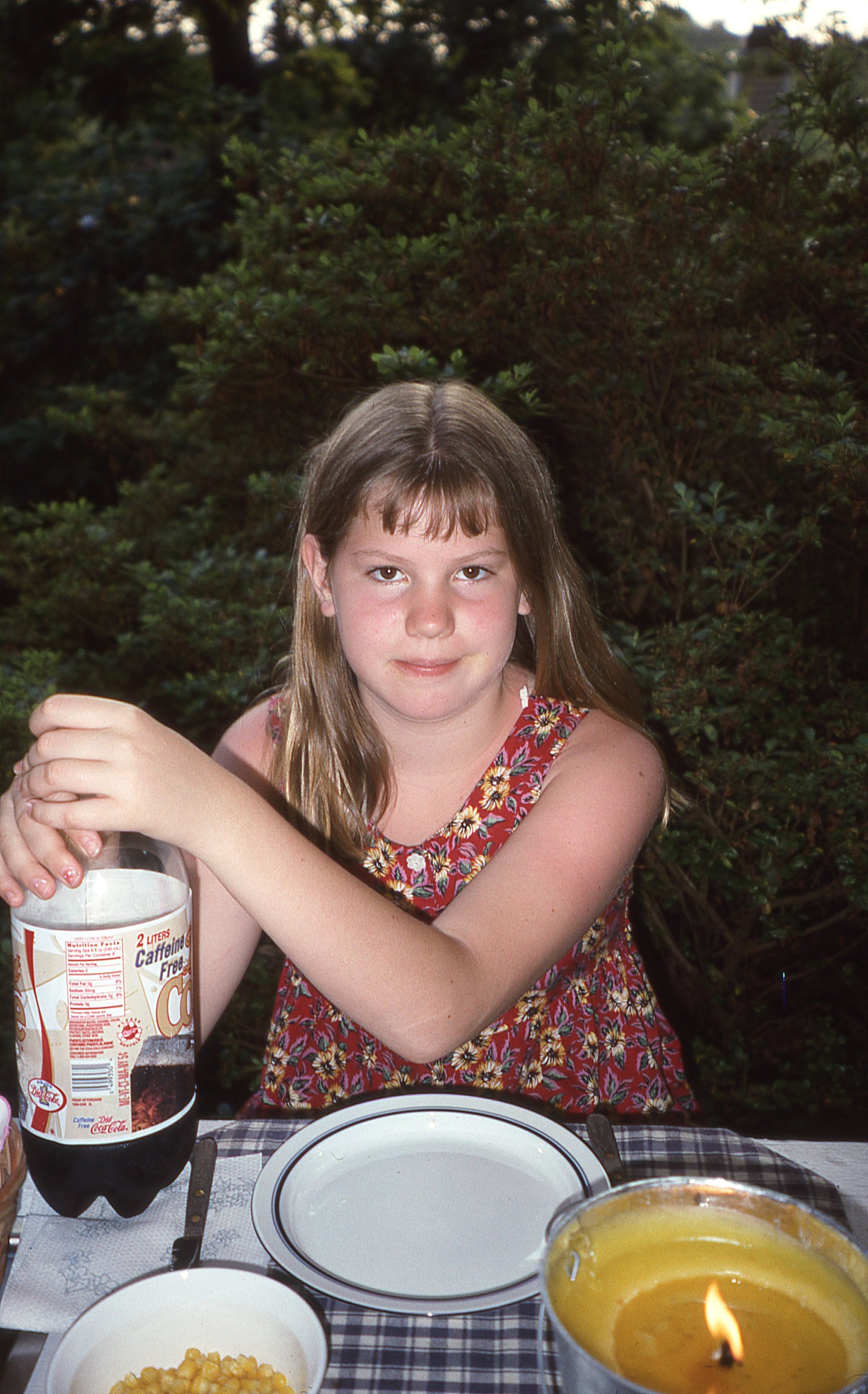
My siblings were allowed to taunt me mercilessly, on family outings and during family time, in full earshot of my parents, who never came to my rescue. My siblings, who were both older than me, ganged up to shame me for my appetites and my weight, and I am sure my parents concluded that this hazing was, while unfortunate, ultimately, "for her own good." I specifically remember my siblings mocking me for making squishy sounds with my mouth, in my sleep. "It's like you're eating whipped cream in your dreams!" they squealed and rollicked, "Don't you know that whipped cream is just like fatty air? It tastes like nothing! Why do you want to eat fatty air, Lilian?" Let that sink in: I was shamed for making noises in my sleep. My dreams themselves, which may be the most "me" part of whatever me-ness is, were demoted to unserious objects of ridicule, because I was chubby. As a desirous being, I became a fucking joke.
I specifically remember my older sister lecturing me about the nature of Reality, which may have been my first impetus towards becoming a philosopher. These days, I can destroy her facile arguments with no effort at all. But to a twelve year old, a fifteen year old sister has the clear upper hand. And she told me, and I quote, "Food is for nutrition and sustenance, Lilian. It's not for pleasure." Oh yeah? Is that the case for sex too? Sex is for procreation, not enjoyment, right? Cause even the Pope has been forced to admit, lately, that sexual pleasure is a gift from God. I think the old Catholic battle ax is dull to the point of impotence on matters of ecstasy. It seems like her argument was both wrong, and boorish to the point of absurdity. But at that time, I just internalized the shame.
With the exception of my sordid appetites for mille-feuille, pommes frites, meringue avec chantilly, and countless other delicious things, I was a good girl. I was kind to others, respectful of my teachers, a diligent student, a budding artist, an aspiring singer, and a rule follower. It came as a total shock to me when I was told that I was failing to live up to my parents' expectations. Every report card I had ever brought home showed that I consistently exceeded expectations. This new test was especially disturbing because I did not know what I had done to become fat, so I did not know what to do to, "avoid gaining any more weight," as the doctor had suggested.
Prior to everyone's meddling, I viewed myself as beautiful, as eligible to be the main character of my Disney-addled fantasies. After being told that, actually, I was fat and needed to rectify that asap, I felt like a vile lump. And I hated myself. God, I hated myself so much, all of a sudden. I wanted to rip my own flesh off, and be the skeleton I was on the inside, the skeleton that everyone wanted me to be. I concluded that only way to ensure I would never make this terrible mistake again, was to take drastic measures. It would not be enough to stop gaining. I had to lose, and lose big. I had to put myself on the Auschwitz diet of 1,000 calories a day, plus two hours of vigorous exercise, six times a week. I never did grow the extra inches.
I can tell you this much: Bodies do not like starvation, and they will fight you every step of the way. Was it really necessary to go on the Auschwitz diet to lose 30lbs and keep it off? The answer is, yes. If that 30lbs constitutes a fifth of your body weight, then yeah, you do need to go on the Auschwitz diet to lose the weight, and keep it off. Keeping it off means living beneath your homeostatic weight, which means maintaining a caloric deficit, all while your body down-regulates your metabolism to adapt to the imposed starvation. This means that if you want to remain unnaturally thin, every day you need to eat slightly less than you ate the day before. You can't just exercise and eat. Exercising and eating builds muscle, which makes you thick, not thin.
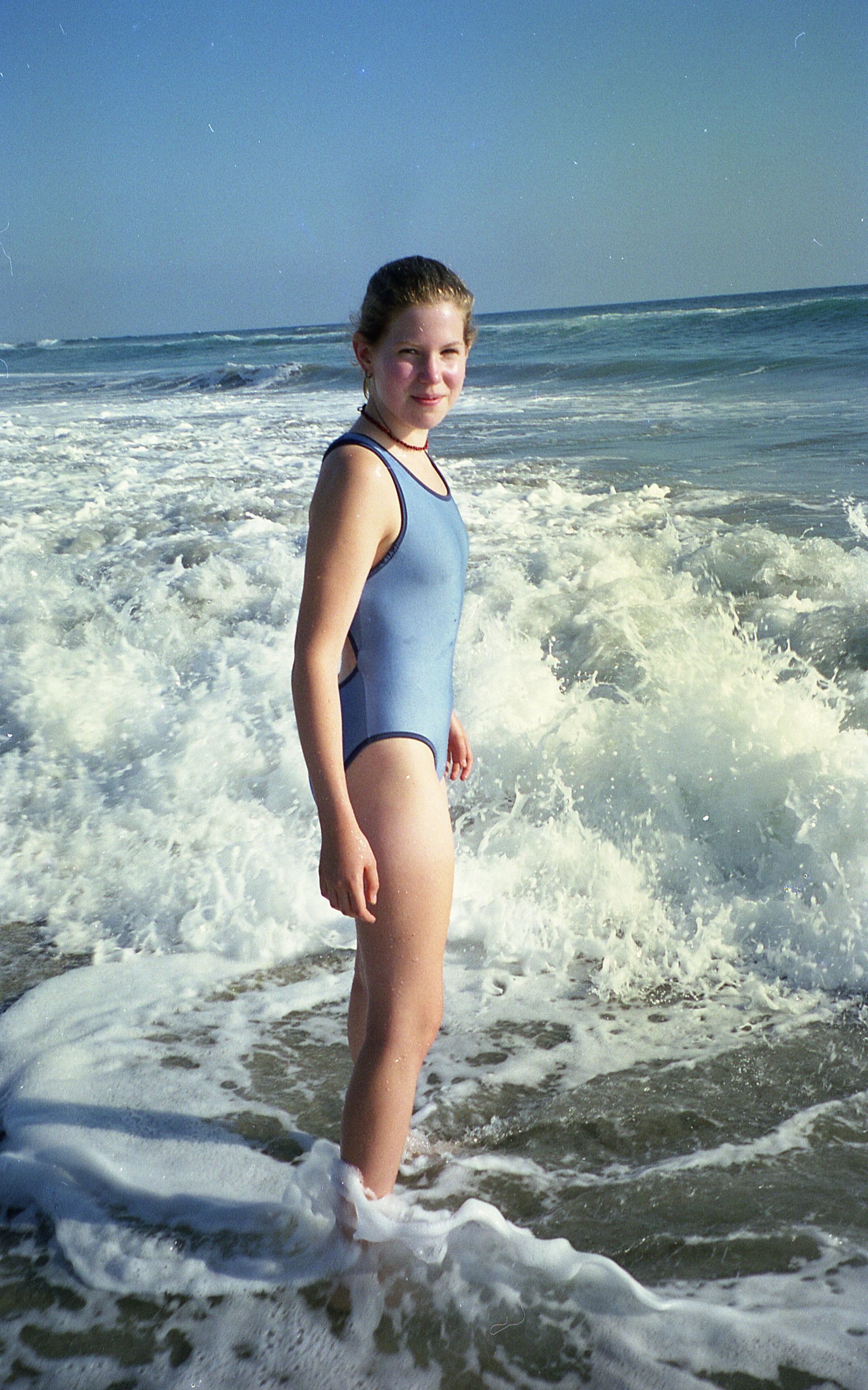
Not to disappear! Disappearing would have been merciful in many ways. Just to avoid exploding into fatness... To stay the same unnaturally thin weight, you must go down that drain of endless war against yourself. I hate running, but I have run thousands of miles in my life. I have biked thousands of miles, swum thousands of miles, lifted countless tons, done HIIT, yoga, trail running, spinning. I tried to outrun my shadow, all while starving. There were lapses in my tyrannical control over food intake, which I initially addressed with exlax. If you have never taken exlax, I can tell you that it hurts. You have terrible cramps and you shit your brains out all night. This destroys your gut microbiome, and further erodes your metabolism.
My memories of my adolescence are absolutely dominated by this daily endless war to stay thin. My eating disorder was a cloud that followed me, that stood always and everywhere between me and the happiness that I was promised would come from thinness. Kate Moss once said that, "Nothing tastes as good as skinny feels," and can you blame her? Her thinness placed her before a fire hose of money that spewed millions upon millions of dollars in her face. But Kate was wrong. Skinny doesn't feel good. It feels like shit. And everywhere you go, there you are. What you will most remember is shitting your brains out all night and falling asleep in class the next day, and not the envy of the girls at school, or how you looked in photos. Skinny doesn't feel like anything good.
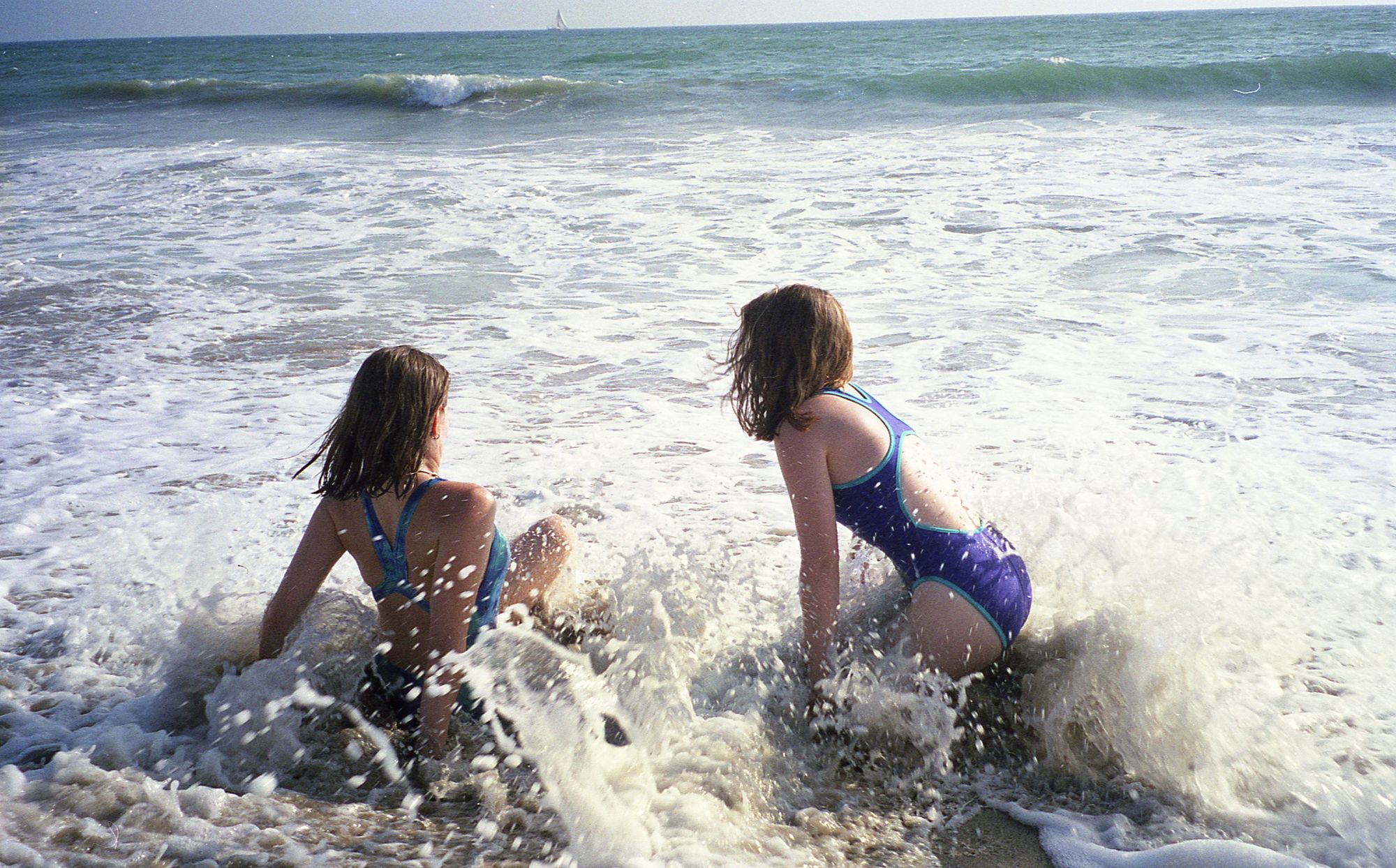
When you are mentally ill, your very reality is mediated through your disease. I don't remember Paris. I remember starving. You remember the torturous siren calls of food. You don't remember what you saw at the Louvre. You remember how cold and hungry you were there. You remember the compulsive rituals you made up to avoid eating at every meal. You remember staying in the hotel room when everyone else went to see the Eiffel Tower. After all, I had already seen the Eiffel Tower before, and starvation made me want to sleep all the time, so I stayed behind and slept. You don't remember the conversations you had, the friends you bonded with... you remember the feeling of your clothes pinching and cutting into your flesh. You remember the confines of your prison cell, and not the view that you could see through the cell window.
Between the ages of 14 and 16 I did not menstruate, which made me happy. I had hated menstruating, from the very first moment that I got my period. Estrogen is produced in fat cells, and thinness can cause menstruation to stop. To me, this was a perk. My mother was loving in the stilted manner of a traumatized Catholic. It is hard to overstate the extent to which I am a lover of Jewish culture, because of its generous allowance for irony, but also sensuality. Freud was a savior to thousands of young Catholics like me, assuring them that mere feelings and urges are not in themselves evil. My mother had not read Freud, and her relationship to sensuality and bodily discomfort can only be described as denial. Denial so complete, it is almost super human. She was not a competent guide into the world of menstruation.
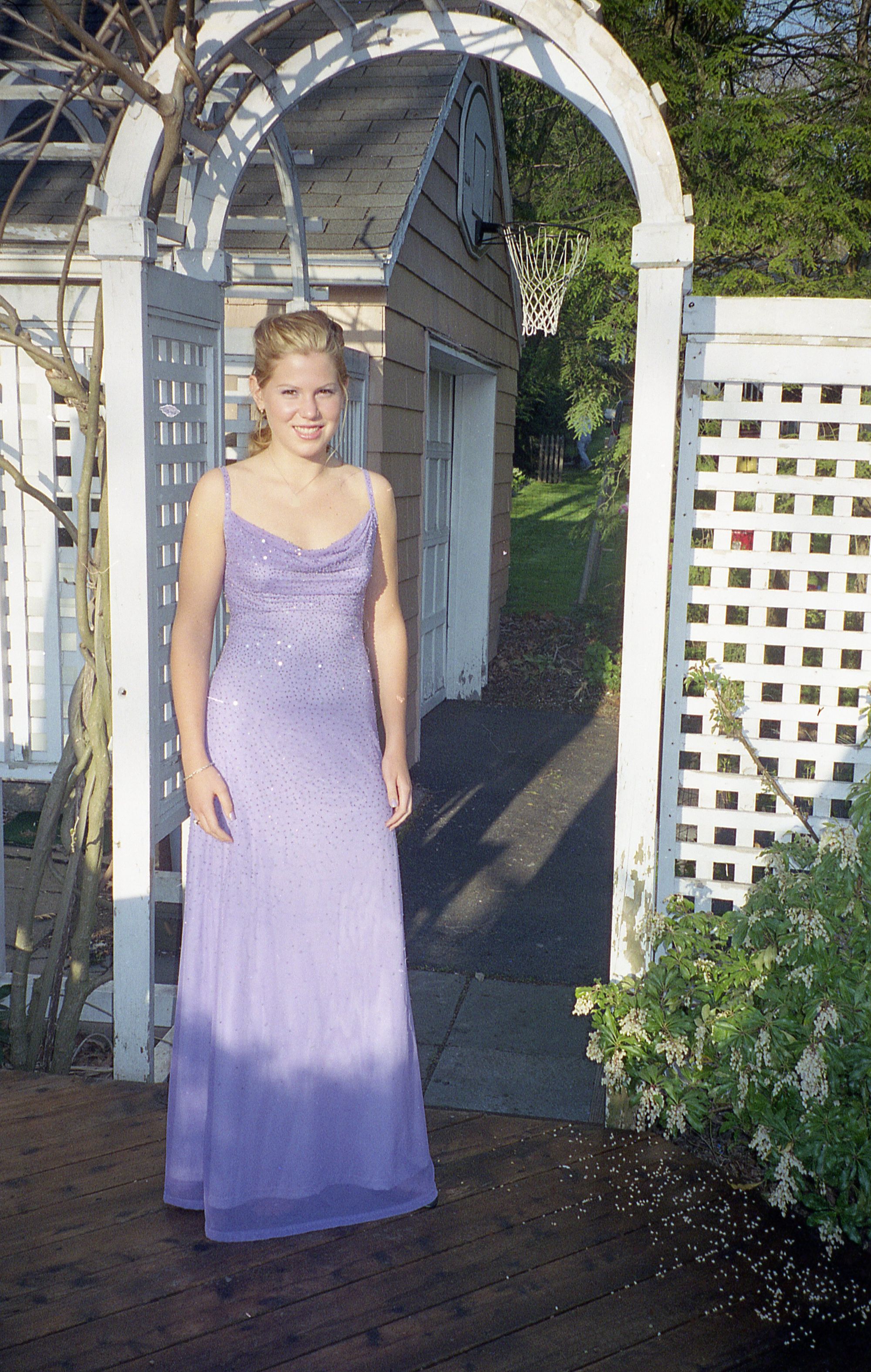
My mother told me a little bit about menstruation, but not the information I needed. There was no follow up. She never checked in after the initial announcement. I didn't get my own supply of tampons or pads. I was told to source pads from her stash, under the bathroom sink. On a number of family vacations, I had no feminine products at all, and I was too shy to ask for them. I hated my body and was not ready to advocate for it. So I stole feminine products from public bathrooms, or in desperation, made my own out of paper towels and plastic wrap. I wore thoroughly soaked pads that were way beyond their useful life, to conserve. "How does she think that I am dealing with this every month?" I wondered, to myself. I wept in the bath as I attempted to wash errant bloodstains from my crappy Caldor underwear. Blood stains never really come out, you know.
One thing I will never forget: How ghoulish people looked. Regular people, everywhere, became zombies and ghouls in my awareness. Their smiles looked ghastly and mocking, their tinny compliments sounded like veiled insults, muffled by the haze of my starvation. Their faces, reptilian as they exclaimed, "OMG, you look amazing!" "You're gorgeous! Just gorgeous!" Other girls fawned over me at school. Going into any fashion store, the saleswomen were genuinely thrilled to play dress-up with my unattainable body. They remarked on how they wished they could be so thin. Men, often much older men, would become blubbering simpletons, tripping all over themselves to shower me with compliments. They want me this way...

Thinness confers upon women the kind of power that money actually confers on men, a wise woman once wrote. I can only describe the attitudes towards the thinness that I was able to embody as obsequious. Obsequious. A thin young woman with the right face has unfathomable power. Of course it would be the case that the nature of the power game for young women is such that they are unaware of the power they posses, just when it is at its peak. A nineteen year old woman in full possession of her power, however circumscribed within a hierarchy that she will never rule, would be quite something. Most starving women are too cold and tired to fathom the extent their power, and that is by design.

Recently I confronted my parents about their undeniable history of fatphobia, and my dad said something like, "You never looked that skinny to me." This is a terrible thing to say, especially to someone who was so thin that she stopped menstruating. But I do not blame people for failing to see past the images they are served. The images we all see everyday are of extremely thin women, women who very likely have amenorrhea, if they menstruate at all. While I succeeded in starving myself sufficiently to enter the same ballpark as Hollywood actresses and models, I was nowhere near as thin as many of them are. The kind of thin that you regularly see in the media, that you think is normal and totally achievable, is predicated upon brutality that you can hardly imagine.
Have there been advances in fat acceptance? Maybe? Not really, though, if you look at the data that I have read. In Kate Manne's excellent new book, Unshrinking, she looks at time series data pertaining to markers of discrimination. Seemingly, contempt for and discrimination against fat people has only increased in my lifetime, even while markers of racism and bigotry show improvement. Thin women make, on average $22,000 more per year than their normal weight counterparts. Fat White women are equally as unlikely to be hired as normal weight Black and Latino women. The vast White ghetto that spans the interior of America, jokingly referred to as 'Flyover Country,' is a repository of fat White bodies, priced out of the cities. "The People of Walmart," is a popular meme, which gives universal permission to yuppie liberals to disparage their fat peers in ways they would never dream of talking about other less fortunate people.
Yes, one or two retailers have decided to feature body size diversity in some of their ad campaigns, but the vast majority of aspirational images women are thin women. I promise you that Bella Hadid does not menstruate. These days, most of the Kardashians don't menstruate either. Occasionally the tabloids follow the women who fail to lose their minds in a sane way, and stumble into "Scary Skinny" territory, or the once-thin starlets who, god forbid, trans-mutate back into a bovine normalcy, after a period of unnatural thinness. But these are acts of lurid and mocking attention, not solidarity.
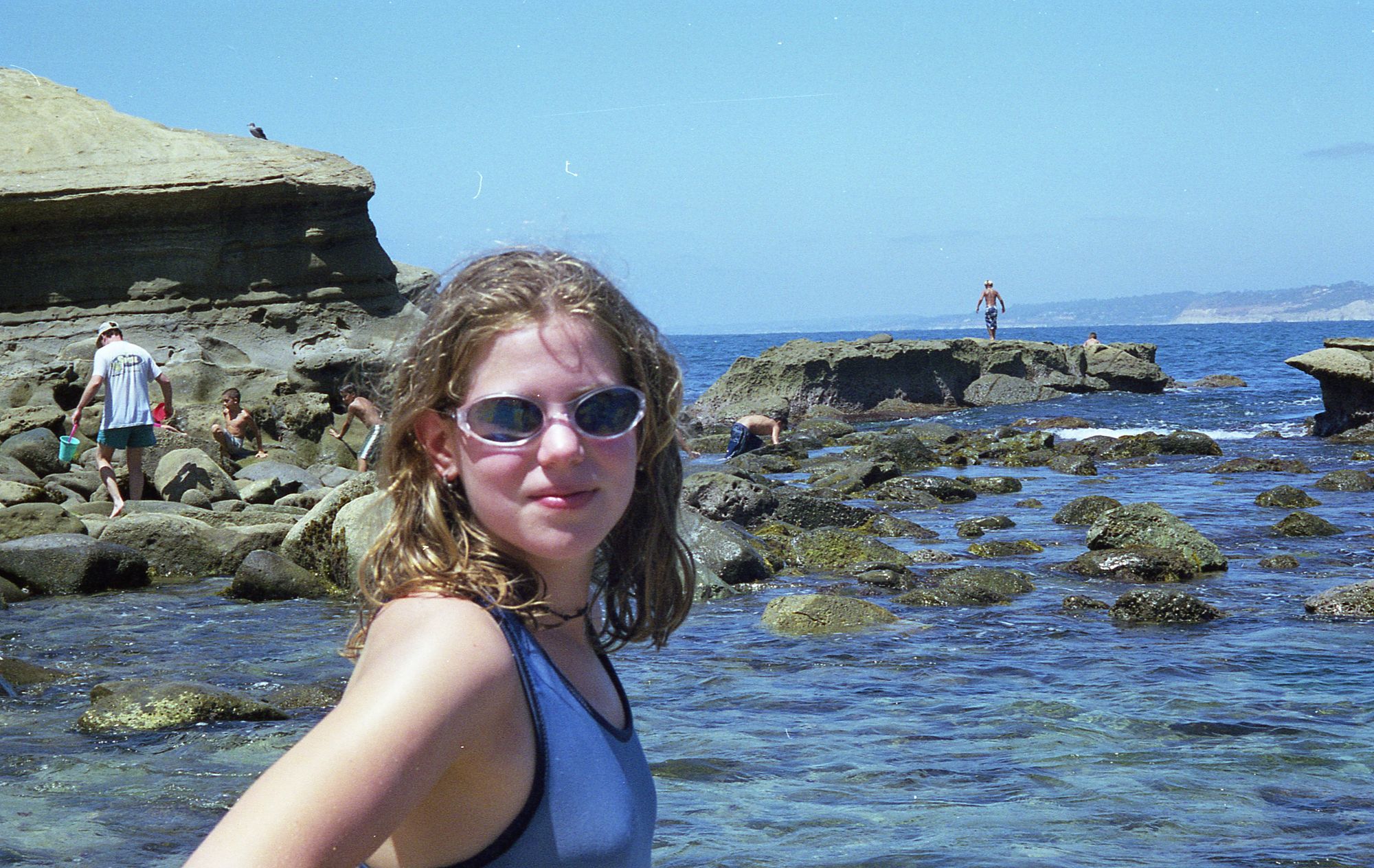
A Glitch in the Matrix
The difference between victory and ridicule–ridicule sanctioned even within my familial spaces, which had once felt private and protected–was a small dog's weight worth of fat. I can picture it, a fatberg sitting there jiggling on a butcher block. The difference between social invisibility, or invitations to elite spaces, for me, was 20-30lbs. The last ten came and went in a roller coaster ride that would put the VIX to shame. It was as if Satan himself had offered me a deal: "Gain the world, and lose yourself." To a truly fat person, 20 lbs probably sounds like nothing. "Big Fats" can lose that or gain that back in a heartbeat. But for me, an already normal-weight person, my body fought me every step of the way. That 20lbs meant constant hunger, constant starvation. It was truly a Sisyphean assignment. And that was my life.
I couldn't help but experience the power of thinness as a sort of glitch in the matrix, a truth I was not supposed to see. It's so bloody stupid, so endlessly joylessly fatuous (pun intended), that any person might treat another person completely differently than they otherwise would, just because they're carrying on their skeletal frame an amount of fat that would fit in your average LLBean backpack. I was not better, more interesting, or a more desirable friend as a thin person. To the contrary, starvation significantly dilutes the joy that one might otherwise be capable of. And yet, it was clear to me that I would have such an easier time navigating the world, if I could somehow figure out a way to hack my own biology, such that I could exist at a homeostasis that was thinner than what my body was programmed to be.
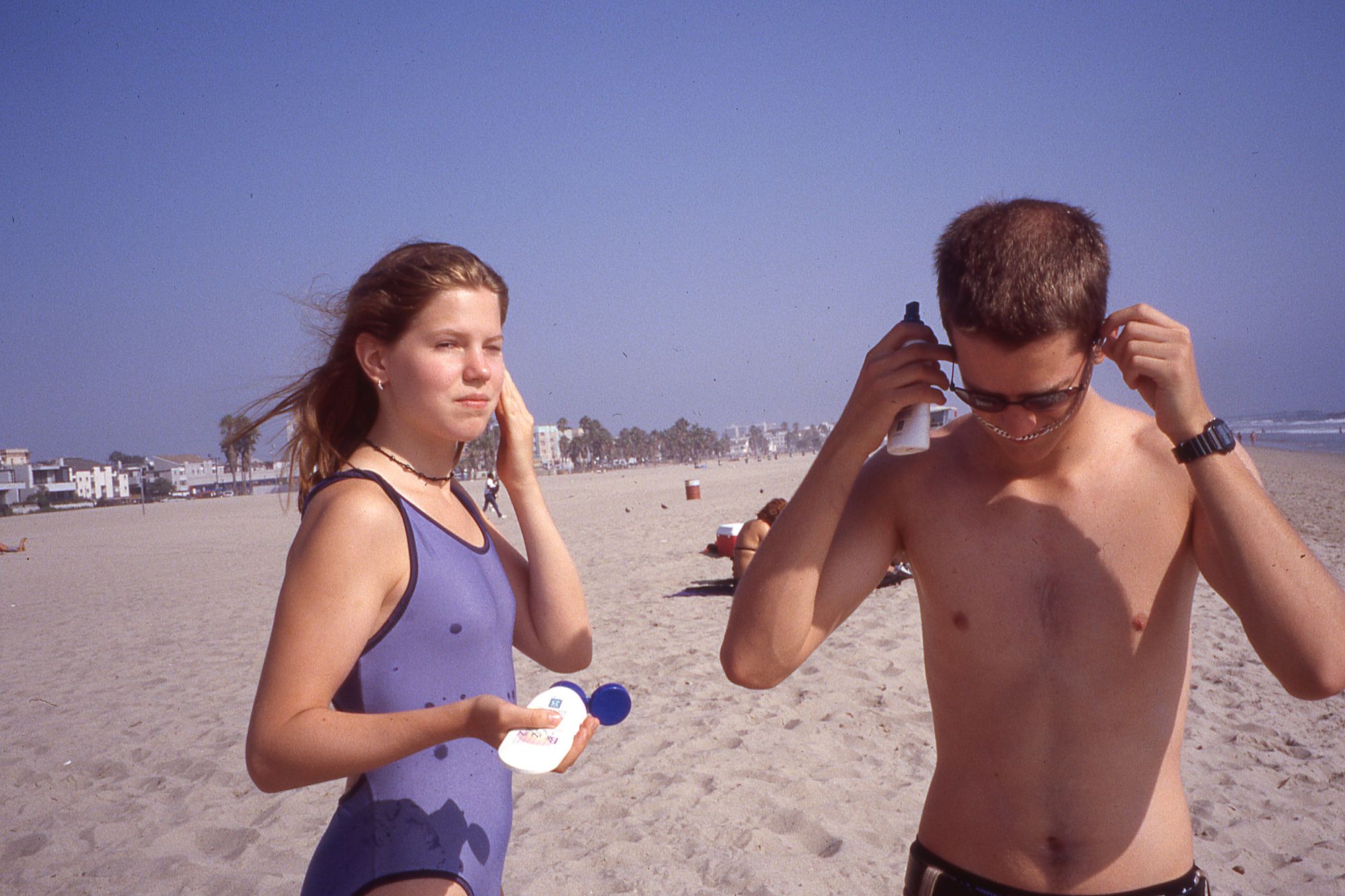
The fact that my own guardians, who constituted the only protection I had ever known, threw me to the wolves over a little bit of chub, revealed to me the naked reality behind the facade. It revealed the underlying indifference and sociopathy of the world, during a time in my development that I still needed to believe that people cared. No parent would think to reveal the full extent of how merciless and arbitrary power can be to their child. How little anyone gives a damn, and how cruelly humans treat each other, is something we generally keep hidden from children as long as possible. In the case of my chubbiness, however, the risk of crushing my spirit was a risk deemed worthwhile. What good would it be for me to retain my self-confidence and joy, if I were to become an "unfuckable lardass," to quote Vladimir Putin (a comment he made about Angela Merkel)?
As an adult woman, my mom has, and always had, the body of Kate Moss. At ~5'6" in height, she struggles to stay above 120lbs. For a brief time, after having three children in the span of three years, she had a few subtle curves, but they melted off quickly and stayed off for good. By high fashion standards, my mom's figure is perfect. She is as lean as she could be, without venturing into Scary Skinny territory (to borrow a term from the tabloids for thin imposters who fail in their disguise). Most importantly, Mãe was thin effortlessly. In the upper echelons of society, among the country club and yacht club crowds, effortless thinness is the holy grail, which no money can buy. Ozempic doesn't change that. Nothing changes that.
Mom's thinness was an asset, and she knew it. Throughout my youth and adolescence, she was almost always the thinnest woman in the room (again, notwithstanding the occasional terminal cancer patient or pathological anorexic). I remember the withering expressions on the faces of countless women in her women-who-lunch group, as she lectured to them about the benefits of whole foods and clean living, as if being thin were something that she accomplished, wholly of her own merit.
I knew better. I know that being thin was not anything that my mom accomplished of her own merit. Even if she maintained her natural thinness through admittedly laudable careful eating, she was most definitely born predisposed to thinness. Every single one of her siblings, none of whom observed any kind of healthy diet, is as thin or thinner than she is. Her siblings are a four-person crew of folks with effectively zero body fat. Her mother and father both, very thin. Her two younger sisters are even thinner than she is. Her older brother, sporting the physique of a Tom Holland, or some other petite but well proportioned Hollywood actor, has never dieted in his life.
To her credit, my mom did, and does, eat an extremely healthy diet. Healthy in the sense of fresh and minimally processed. But not a calorie-restricted diet. Mãe was a full-time mom, and considered cooking to be one of her job duties, in addition to being a great passion of hers. I grew up eating, not food, but cuisine. We never ordered pizza or Chinese food delivery. Literally not even once. We never ordered takeout or delivery of any kind. Seriously. I grew up gladly eating fish every week, other lean meats, a variety of whole grains like farro, quinoa, and lentils, black beans, chick peas, spinach, vegetables cooked in surprising ways. Dessert was usually sliced fruit. I grew up tall and solid.
My mom was made fun of as a young woman in Brazil, who went through puberty in the late 1950's. Classmates called her Oliva Palito, which translates to "Olive Toothpick," a riff on the Popeye cartoon character's wife, Olive Oyl. Apparently she had the same toothpick physique and chestnut-black hair as Olive. During puberty, she desperately tried to put on weight. On her walks home from school, she would stop at the bread bakery, and buy the only delicacy she could afford on chore money: A plain baguette, whose insides had been spread with butter and sprinkled with sugar. She would eat the entire thing, hoping, and failing, to gain weight. In Brazil in the 1960s, it was still desirable to have curves. But her time arrived exactly on time.
With "Women's Liberation," chastity fell out of fashion, but thinness replaced one unachievable and repressive ideal with another. Suddenly my mom's physique was all the rage. The unliberated women of antiquity were stoned to death for adultery, and our unliberated grandmothers were sent to insane asylums for adultery, but today, it is liberated women who impose all manner of repression on themselves. We may have access to bank accounts, lines of credit, and orgasms (which remain our responsibility, if you believe the studies on teen sex habits), but our cell in our prison of beliefs is as small as it ever was.
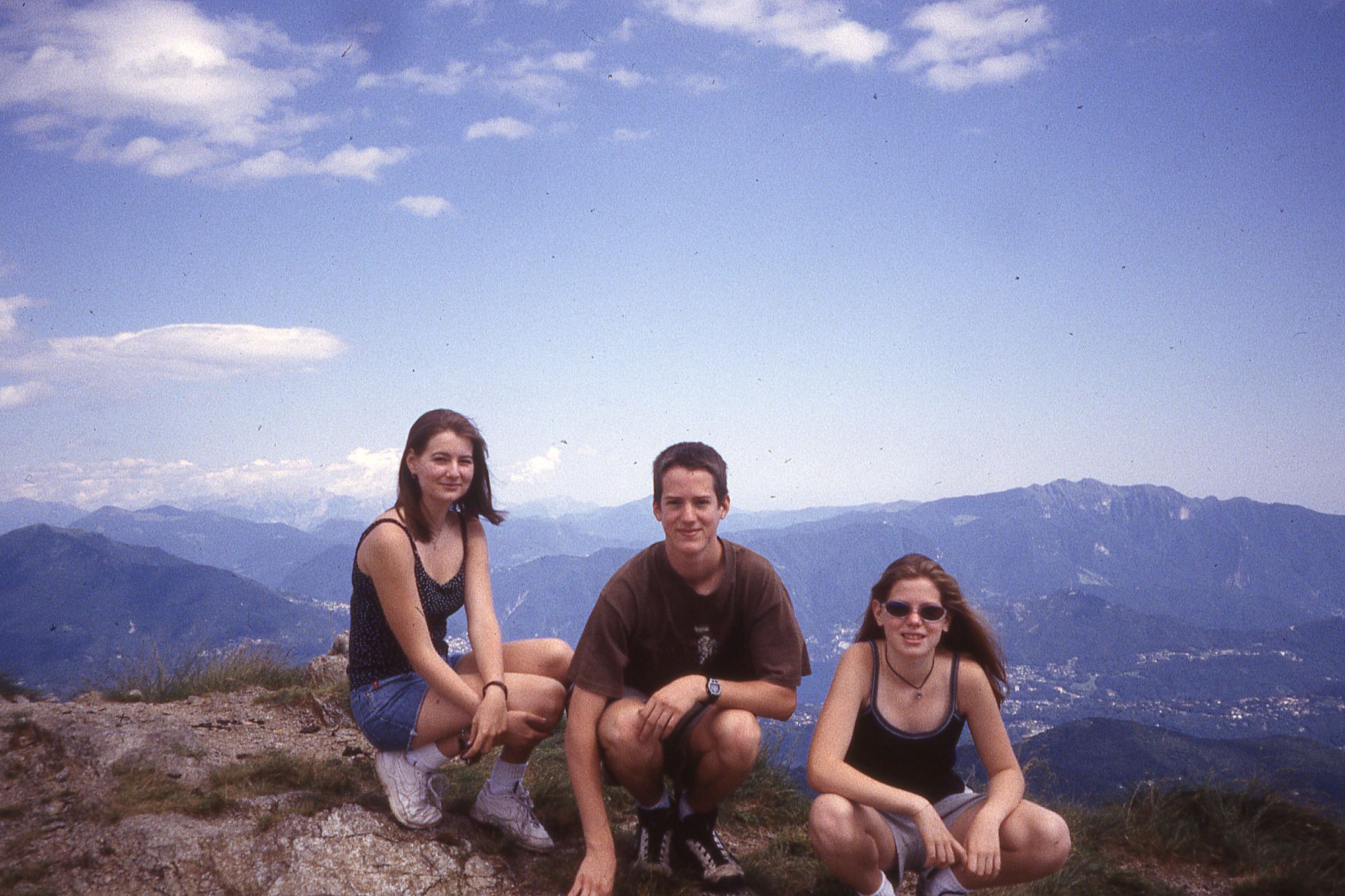
In fact, if you are a young woman who questions whether your prison of beliefs really needs to be quite so confining, and you seek either redress, or just plain pity from the world, be prepared to be blamed for your own suffering. Be prepared to be turned away. Every victim knows this maddening logic: You are both powerless and fully to blame. "I never told you to lose so much weight. You did that to yourself," my siblings said. "You know, real men don't even want their women that skinny. They want some cushion for the pushin," boyfriends have said. Yes, but every person benefits from a labor pool primed to sell itself too cheaply, and every man benefits materially from a mate pool primed to give everything away for nothing.
Motherf**kin Murdera
I have come to cherish the person who I became, as a result of the fatphobic hazing I was subjected to as a teenager. Why? Not because I think it was a good use of my time and energy. No. But because I have come to embody the voice of violence and power, and I am ready to show no mercy and take no prisoners. If you are going to come for me with any moralizing bullshit, you will get your ass handed to you. And this strength, this fierceness, is something that has protected me in countless ways, and has led me to choose a partner as a husband who truly sees me. Thinness is the God of the godless, and the godless, I have learned, have no leg to stand on, if you take away thinness.
Other people, who were never thus abused, still cling to infantile conceits that to me are egotistical and delusional. If they don't get a sticker or a plastic gilded trophy from the universe everyday, they are not able to function. Me? I have internalized a super ego that speaks to me in the voice that I know is the true voice of the universe, and that voice is not the voice of a kindergarten teacher. That voice is much more akin the voice of Vladimir Putin, or some other ruthless dictator, than a kindergarten teacher. I know all too well that the world stands ready to turn on any woman, if she ever decides that she might be entitled to any freedom, which is not administered as a punishment.
Power does not concede rights. Power does not give away rights. Power perceives the powerless as ugly, dumb, fat, fatuous, and deserving of their low status. Power looks at anyone who begs for mercy as a failure, which merits contempt and blame, but certainly not empathy. Empathy flows upwards to our bosses and their bosses, and the Old Boy's network, which retains its title to power. Any concession that power makes, such as diversity, inclusion, or new rights, must be administered as a punishment, or it would endanger the status quo. Entry into professional careers must be paired with the utter devaluation of motherhood and traditional women's work. Sexual freedom must be paired with twiggy body ideals. Maternity leave is legally classified as a disability, and must be paired with pseudo-scientific breastfeeding mandates. Bank accounts and lines of credit must be granted with an imperative to spend most of your disposable income on beauty treatments.
Mom and dad were right. Being thin opened every door for me. I went from being invisible to being coveted. I don't even remember how I got there, or who invited me, but I and a large group of popular kids watched a 70's porno movie (on VHS!) at this kid's house in Pound Ridge whose father was a film producer and had a massive movie theater at home. I became the favorite pet of private school transients in my public school. A granddaughter of the Edelman's, whose leather import-export company's ads you can see in Architectural Digest, became my best friend before she went off to Sacred Heart. The Edelmans had Tiffany lamps in a massive converted barn in their sprawling Bedford estate. "Who is Tiffany?" I had asked, in full ignorance. Sam, of Sam and Libby Shoes, the Edelman's son in law, told me that I could never be too skinny, too rich, or too tan.
After school, I often went to "the barn" with rich girls who rode horses (so much fuss for a comparatively short riding time). And the rewards just kept coming: Invitations to beach houses on Martha's Vineyard, spring break in Cancun, Thanksgiving in the Berkshires, skiing in Vail, sunning in Palm Beach. All paid for by others. There was a crazed wild-eyed man that ran up to me in an IKEA aisle and asked me whether I was aware that I was unspeakably gorgeous, who begged me for my phone number, though I timidly declined. Being popular was hell. Unending hell. Why? Rich kids are mean, and compulsively comparative. Almost every conversation they engage in is a cruel take-down of some other person or group. It is almost like White "culture" isn't a culture at all, but merely the practice of pathological exclusion.
Versus my siblings, thinness got me into much better places. The music was better, the mansions were better, the house parties were better, the swimming spots were better, the drugs were better. My brother had a brief ascendancy into coolness that was ruined when my mother was unhip enough to call another kid's mother and complain about finding weed on him. Adam Green, the supplier of the weed, who ditched my brother as friend after being ratted out, became some kind of indie music sensation in adulthood, and toured the world playing his bad music. In 2006, I took a friend to see Adam play music in Zürich, and I was actually mortified about how terrible the music was. But he had connections in the music industry. Digressing again...
Thinness taught me some important lessons about ambition and striving. I gained an insider's view into the lives of the super wealthy because of my willingness to comply with thinness. Some of them are nice enough people, but overwhelmingly, their souls are totally inflamed with jealousy, fear, and contempt. Eventually in my mid-twenties, years after I gave up on real thinness, I would come to work in private banking, and I saw first hand that my experiences as a teen had not been anecdotal or a fluke. Rich people were, and are, absolutely obsessed with being thin. Rich women's souls live and die based on thinness. But increasingly the men are falling into the same trap. As the gender straitjacket frays, men are forced to bow down to a thin God too.
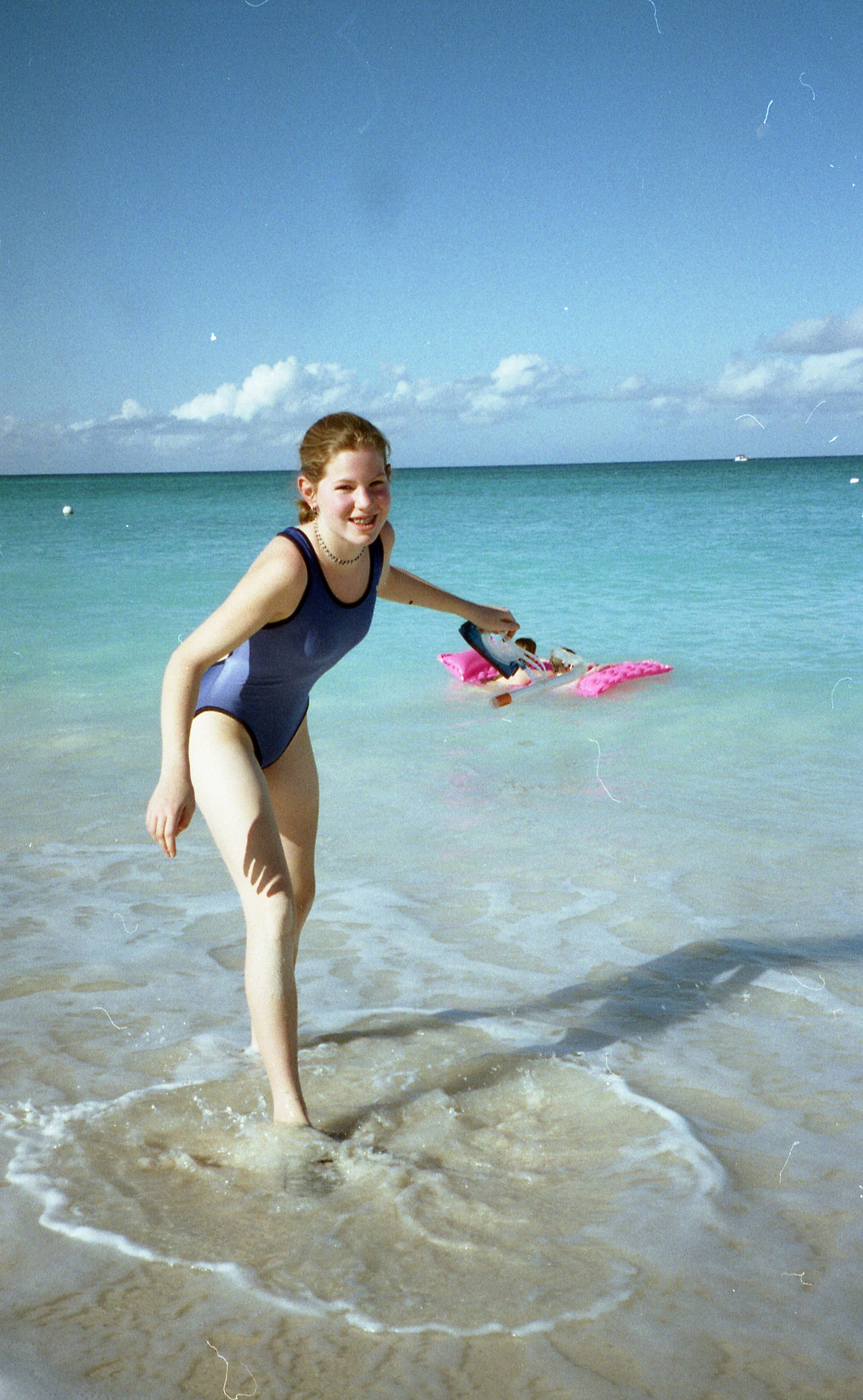
I learned from being admitted to their court that the so-called One Percent are vulgar bourgeoisie, no more literate and cultured, necessarily, than your average backwoods redneck, except they have the money somehow. Many have the wits to be talented bureaucrats, and this type of talent merely requires you to be calm and unconflicted about your sociopathy. It wasn't until I got to college that I met truly literate people, i.e. the educated working class. Even rich liberals, most of whom are merely petty bourgeois (upper middle class), are full of shit. For all of their grousing about equality, they are effectively neo-segregationists, who pretend that their real estate purchasing decisions are about "good schools," and not a desperate attempt to gain entré to exclusive spaces for their bratty kids, whom they no doubt imagine as willowy and eternally thin.
Upchuck
Eventually the dissonances became too much, and I lost the ability to process inputs. Panic attacks all day everyday. Aspartame is pharmacologically active and inhibits serotonin production. The chemical poison they made me drink, I suspect, exacerbated my anxiety into something totally debilitating. The anorexia that I managed with the occasional exlax hammer, eventually devolved into full on bulimia. I still remember the first time I made myself puke. It was in the bathroom of a Pizza Hut in Ridgefield, Connecticut, after getting a manicure with my friend Rosie. Eating let me forget my panic for a second, but like withdrawal from Xanax, eating would lead to a rebound in panic, as my distended stomach reminded me of the love and acceptance that would be withdrawn, once that food–all of it–went to my hips.
Bulimia was as much of a sin against my mother as a sin against myself. Trashing the body she helped nurture, and hated and feared so cruelly. But I was really good at it. My existential nausea was at such a permanently high level that I could vomit on command. That's right, I did not even need to stick anything down my throat, in order to puke. To avoid splatter, I would vomit into my cupped hands, and place the vomit gently it in the toilet. Then I washed my hands, used toilet paper to clean any splatter on the seat, flushed, and washed my hands again. Lastly, I would brush my teeth, so as not to ruin the enamel. I did this anywhere from five to fifteen times a day. These days, any time I puke involuntarily, I am reminded of just how awful it is.
Panic, binge, purge, panic, binge, purge, panic, binge, purge. That was my life for two years straight, between the ages of 16 and 18. They won. They drowned me, and I almost died. I ruined many of my scholarly and career prospects in the process, and foreclosed upon countless empowering avenues. I also learned about false promises. And false consciousness. And that has been the most instructive education I could possibly have had. Most people are totally unaware that their comforting moral narratives are bullshit. Most of what you will be praised for is not anything that you can possibly choose. I at least know the terms, even if I reject the terms.

And I fought back. When I washed up at Bryn Mawr College, I made a conscious decision to stop purging, consequences be damned. I decided to nurse my metabolism back to health. And I decided not to care anymore whether all the fake gilded love in the world would be withdrawn from me. I had taken the magic mushrooms, and I knew that there was no loneliness lonelier than the company of assholes. Truly, I would rather be alone. I had my defenses ready. I was ready to reject high heels and other torture devices, I was ready to forego rich assholes who would treat me badly, and in general, I was ready to lose the world in order to gain myself back. This stance, which I have fought for so hard, is no small feat. I know with absolute certainty that I am a murderer. I will kill or be killed, no hesitation.
The bubble I grew up in consisted of the so-called winners in an American system that sold out its middle class. Among the financiers, movie producers, music producers, doctors and lawyers, there was not a lot of talk about the trail of bodies, in descriptions of the dream of global technological advancement and improved living standards. My peers were Clinton Democrats, whom I consider to be essentially Chicago School Republicans, who concede, reluctantly, that queer people make superior art. I came to understand that thinness was a shield, a moral cloak to them: When your soul is greedy, you cannot afford to look the part. Can you imagine a nouveau riche of fat people? There would be guillotines set up, overnight. But when you start to see with the right eyes, you see much of the thinness they use to cloak their rotten souls as haggard and frightening.
As a still-living soul, I have also learned to move amidst the walking dead in stealth. Dispositionally speaking, if you need time to think, you're SOL. It's best that you do not think. I don't mean "thinking" as in "intelligence." Intelligence is task-oriented, and obliterates the self, insofar as the self disappears. If you want to have a voice, you need to be self-reflective, and this takes a lot of time spent doing nothing. This is precisely the type of thinking that you should avoid doing, or at very least, if you feel that you cannot help yourself from thinking, do it in secret. Being an alive person will just make the zombies smell you. They know you're alive even though they're not, and they will come for you. Be ever ready.
Lastly, I learned to make sure to stare deeply into the most unflattering mirror possible. It shouldn't be a surprise that maybe you're a superficial and scheming hag, incapable of love. That, in any case, should be the moral starting place for any quest of self-improvement. You should not be offended by this world view of people. It is an ever-present possibility, and in fact it constitutes the horizon of possibility of goodness. Freedom is not a question for free beings. It is a question for constrained beings. People who would never do hard drugs or cheat on their spouses are nonetheless getting high on ego trips. Vanity, too, is a mortal sin.

The other day, my daughter asked me, "Mommy, what does 'chunky' mean?" I told her that something chunky is thick and strong, like the trunk of a tree, and the opposite of chunky is thin, like a stick or a tree branch. "I don't ever want to be thin! I want to be strong like the trunk of a tree!" she responded, flamboyantly. I smiled quietly to myself. "That's right, Yvie," I said coolly and calmly, as if this were the most obvious insight in the world. "That's exactly right."